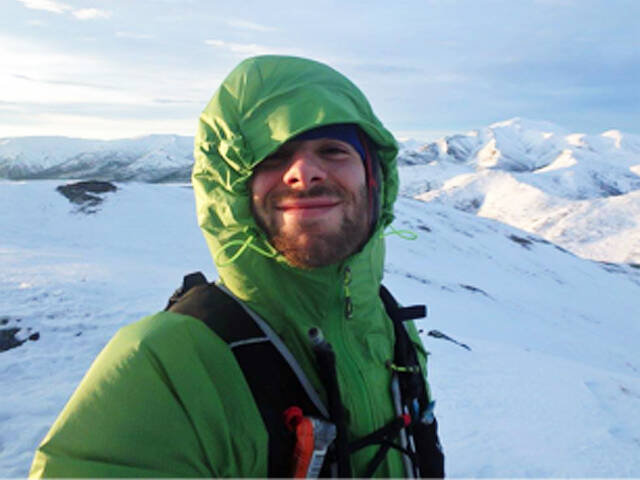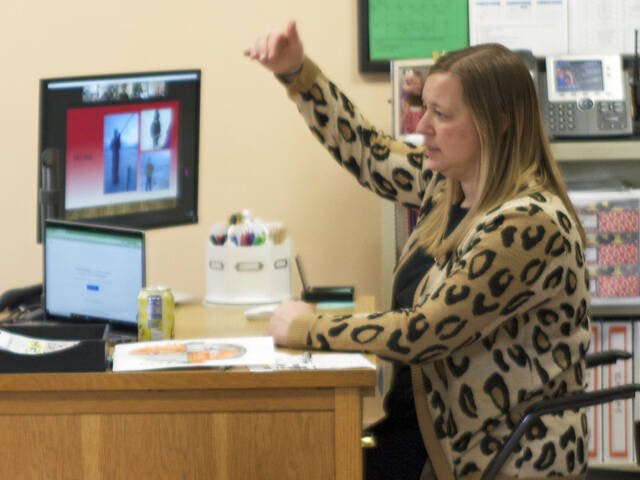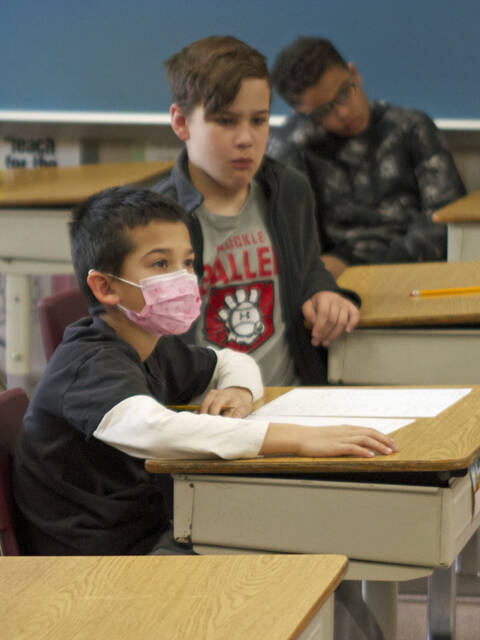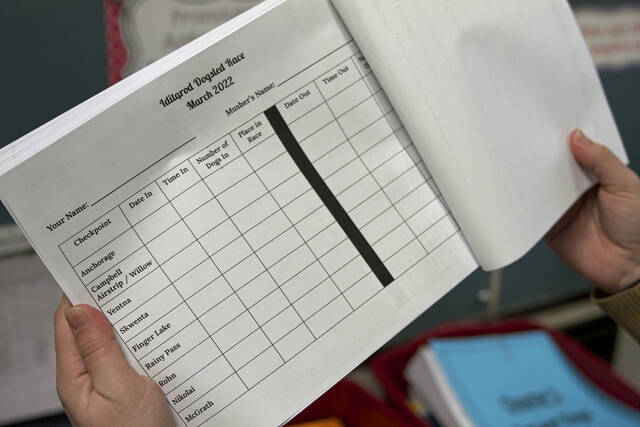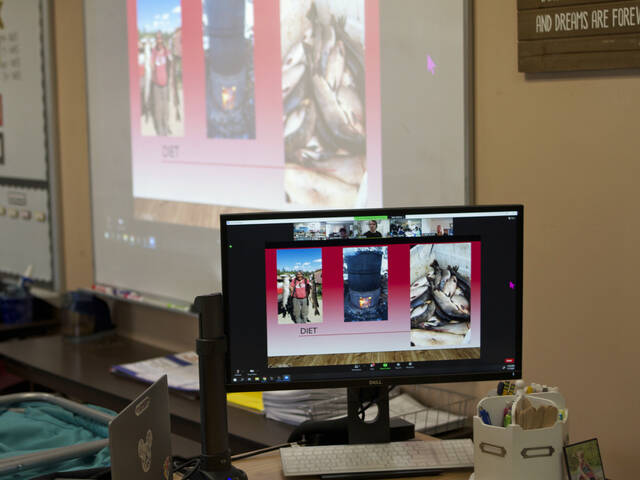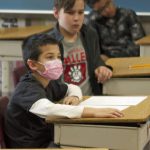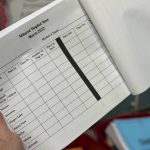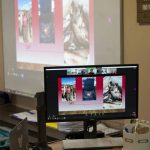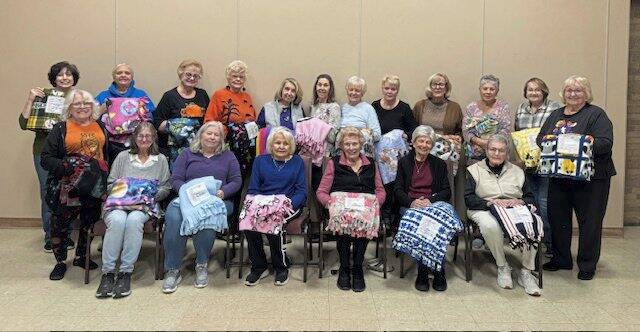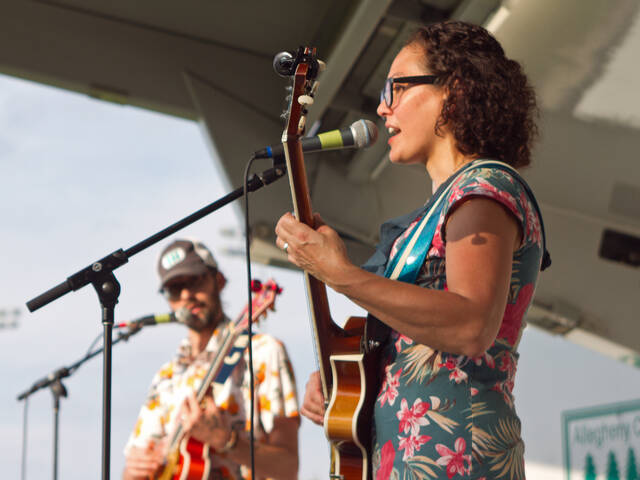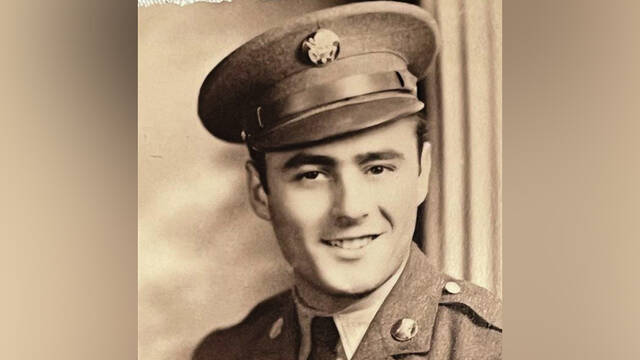Beware of Bullwinkle, apparently.
According to a Bethel Park native who makes his home in America’s Last Frontier, the friendly fellow featured in Jay Ward cartoons is the opposite of the genuine article.
“You guys probably think the most dangerous things in Alaska are wolves or bears,” Scott Brucker said. “It’s actually moose. Moose kill more people than bears and wolves do.”
In advance of the 2022 Iditarod Trail Sled Dog Race, Brucker spoke via Zoom to three classes of third-graders at Bethel Park’s Ben Franklin Elementary School, sharing his insight as an active musher. And among the potential travails of racing is running afoul of a beast that can weigh up to three-quarters of a ton.
“I’ve driven up to moose in a car before where you can almost drive underneath them. Those legs on that moose are immensely tall,” Bucker said. “You stop the dog team, and that moose thinks they’re wolves. That’s their natural enemy. And they will charge and they will stomp, and they are capable of killing your dogs.”
That’s not all.
“As a human, that moose will kill you, too,” he said.
Fortunately, Brucker and his 17 sled dogs are doing fine. His specialty is sprint racing, in which dogs run at about twice the speed they do during the course of the approximately 1,000-mile Iditarod.
This year’s competition, which marks the event’s 50-year anniversary, starts Sunday afternoon in Willow, Alaska. Seventeen women and 32 men from five different countries are vying to be the first to reach Nome and the finish line.
For the past few years, Franklin third-grade teacher Lindsay Crowley and her colleagues have used the Iditarod as a multidisciplinary educational activity. Through James Cromie, Bethel Park School District’s director of communication and public relations, Crowley learned about Brucker and his unique perspective as a hometown guy who happens to race dogs.
He also happens to be a fellow educator, teaching special education in Yukon-Koyukuk School District, which serves a geographic area larger than the state of Washington. According to Brucker’s biography on the district website:
“I knew nothing about Alaska and shared no real interest in it, other than the idea that it sounded crazy and it was something none of my friends back on the East Coast were doing.”
He enlightened the Ben Franklin students about multiple aspects of what he does with his dogs, such as keeping them from going hungry.
“How I feed my dogs might be a little different than how you feed dogs back home. You go to the store, and you might buy pet food,” he said. “With as many dogs as I have to feed, I would run out of money really fast. My dogs would eat about 50, 60 bucks worth of kibble in a day. I can’t afford that.”
So he does a lot of fishing on behalf of their sustenance, taking his boat onto the water until it’s too frozen to navigate, usually by mid-October.
Yes, it gets cold up there.
“I’ve seen 72 below, and that’s the ambient air temperature, not the wind chill,” Brucker said. “That is the actual temperature.”
Back in well-above-zero-Fahrenheit Bethel Park, each Franklin third-grader is taking a vested interest in the faraway Iditarod by choosing an individual racer and following his or her progress on the long trek east.
“The kids really get into it,” Crowley said. “They get so excited to get on those Chromebooks and check on their mushers: They’re in this place, or they’re in that place.”
Along with the likes of geography, climatology and zoology, students also learn about literature. In fact, Crowley said the idea for Iditarod-related lessons was inspired by a poem about Susan Butcher, a four-time winner of the race.
“I do a read-aloud of the book ‘Balto,’ which is about the 1925 serum run that went from Anchorage to Nome,” Crowley said, referencing the origins of what eventually became the Iditarod. “That sort of sets the background.”
While Brucker’s Bethel Park background offered nothing in the way of mushing, he quickly learned the activity’s No. 1 rule: “You never lose your dog team.”
In his first six years, he didn’t. Then came the day he’d dreaded.
“My foot went through the surface of the snow,” Brucker said. “I stumbled and I fell, and it spooked my dogs. And they took off without me in the snow. I wasn’t able to hold them.”
The dogs ran four miles without him. But as a marathon runner, bicyclist and cross-country skier, he eventually was able to catch up on foot.
“Thank God none of them was injured,” he said.


